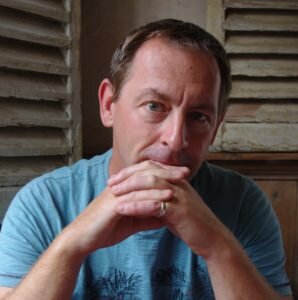Q and A with Louise Jenson
I am absolutely thrilled (and very excited!) to have Louise Jensen, author of the stunning psychological thriller The Sister, as a guest on Bloomin’ Brilliant Books today. She has been kind enough to let me badger her with questions. Enjoy!
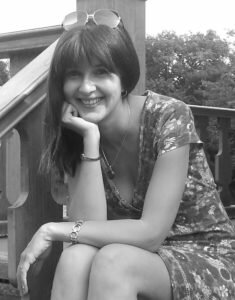
When did you first get the idea for The Sister and what inspired the story?
It was during a ‘hot pen’ exercise at a writer’s meeting. I’d been googling self-publishing as I was toying with the idea of writing a book on Mindfulness, and I found a writing group, not a million miles away from me, who were discussing self-publishing that evening. I went along and the evening kicked off with a challenge. I was given three words and ten minutes to write something. My words included forest and shovel and the bare bones of chapter one was born. Driving home I couldn’t stop thinking of Grace and Charlie and how their story might progress, and after a few sleepless nights I put pen to paper and started to expand my story, never dreaming at that stage it would end up as a novel.
How long did it take from the initial idea to completing the final draft?
It took about 18 months. I was writing alongside working as a Mindfulness Coach, which I still continue to do, and fitting it around my family, snatching writing time where I could.
The Sister has complex, interwoven plot which relies on the reader gaining an understanding of past events. Did you have to carefully plan out the plot to ensure it all comes together and if so how did you do this?
Goodness, how I long to be one of those writers that plans! The Sister was originally called Dear Grace and it was a love story. I had a loose idea for a story in my head, a beginning and an end but when I’d finished it I wasn’t happy and so I virtually started again. I find when I write I have to get a basic story down and then I rewrite many times, each time weaving in a new plot strand. Even if I think of two new strands I have to write one at a time, knowing half of it will likely change when I add further strands. I have to be able to feel the story as it goes and layering it up, although time consuming to write, really helps me get to know my characters.
Hoping from past to present, linking up both threads, and writing in both past and present tense was ambitious, too ambitious for my first book. I had no writing experience and was full of enthusiasm, with no idea just how hard it would be. As the story progressed there were many, many times I wished I’d picked one tense and one time period and was writing a chronological story.
For me, The Sister is so much more than a thriller. I found the stories of Grace, Charlie, Lexie and Anna incredibly moving. It is quite unusual for a thriller for the reader to feel so much empathy for the perpetrator as I did with Anna. Did you deliberately set out to do this and if so why?
That’s so lovely of you to say. I never set out to write a thriller and I think that was the beauty of writing a debut. I quite naively never thought once about genre or marketing. I wrote the story I wanted to tell. The story I wanted to read. I love emotional books with longevity and wanted to write something beautiful but also with that sense of unnerving I also like to feel when I read.
It was vital to me that each and every character had motivation for every single action they carried out that was deep rooted and real. I didn’t want to create two-dimensional characters and I knew from the beginning I didn’t want to write about a psychopath or a sociopath but about someone who has actually gone through a really traumatic experience and that experience has shaped the way they think. The way they act.
Life isn’t always black and white. The goodies and the baddies. There’s a huge grey area that can cause ordinary people to do extraordinary things and this is something I wanted to explore.
As a reader I get emotionally attached to the characters in a book. They are your characters that you have created so how did it feel when the book was completed and your journey with them had ended?
I realised how attached I’d got to the characters when I took my husband out to dinner on 6th November to celebrate Grace’s birthday! It’s been so hard leaving them behind to start something fresh and I think of them often. I find myself frequently wondering about Charlie’s lost years so she may come back at some stage in the future.
This is your debut novel. Was it difficult to get a publisher and get your book out there?
There were inevitable rejections of course, that’s part and parcel of being a writer but my book wasn’t properly finished until January this year, so I’ve been incredibly lucky with how quickly it has come to publication.
When did you first start writing?
As a child I wrote constantly, short stories, poems, I even created my own book; sellotaped pages and self-illustrated. When I left school, nearly thirty years ago careers advice was very different. I was encouraged to work in a bank or be a secretary, a ‘proper’ job, writing seemed completely unobtainable.
In my thirties I became disabled and overnight my life crumbled. I couldn’t stand up to do my job anymore, I couldn’t walk my dog, horse ride, run. All my passions slipped away and life became very, very dark.
After discovering mindfulness I started writing articles on disability and chronic pain and how I cope using natural methods and my passion for words came flooding back and it was such a relief to find something I could do. A chink of light. Of hope. The possibility that the future might not be as grim as I’d feared.
Who encouraged you to write and take the plunge to get your book out there?
Louise Walters, author of the gorgeous Mrs Sinclair’s Suitcase, became my mentor through The Womentoring Project, founded by Kerry Hudson. I approached her with my 200 word story of Grace and Charlie and asked her how to expand it and she told me it read more like the opening of a novel than a short story. She was so matter of fact suggesting I write a book I thought why not give it a try. Having a mentor, although only for a short time, was an amazing experience and I’m so very grateful for the support she gave me.
What advice would you give to other aspiring writers?
To listen to your heart and not take too much heed of the advice of others. Tell the story you want to write and if you can afford it, get a critique when you’ve finished. It makes so much difference to have your manuscript appraised by a non-biased expert.
When writing do you aim for a set number of words or page per day?
In an ideal world I’d love to write 1000 words a day but I have a disability that causes a lot of inflammation and pain and some days I can’t write at all. On those days, I’m kind to myself and take the time to read instead. Reading is the single best thing I’ve found for improving my writing.
Did you do any research for The Sister?
In the original book Charlie had a health condition that shaped her and I did lots of research into this and talked to specialists and doctors but in the end I decided not to take this route. I also spoke to my local fire department who were so helpful. It was so nerve wracking approaching people when I had no publishing credentials to back up my claims of being an author but everyone was so lovely and happy to answer my questions.
How did you feel when the first reviews came out?
Massively relieved! As you said earlier it is a thriller but there is a real emotional element to this story, a real heart and I thought many hard-core thriller fans might hate it. I wanted readers to feel unnerved, check their doors were locked while reading it, but to also have a real lump in the throat in some places. The response from book bloggers and reviewers have been more than I dared to hope for and I’m so grateful for everyone for taking the time to review.
This will be your first ever publication day. Do you have any plans on how your going to spend the day?
I’m doing a live Q&A session over at the Crime Book Club on Facebook. I can’t think of a better way to spend my day than with readers and I’m so excited. I hope to squeeze in a cream tea too, I’m slightly addicted to pretty china tea cups and scones.
There are a lot of references to the books Grace is reading in The Sister, which is unusual (Jane Eyre sticks in my mind as it is one of my favourite novels!). Why did you include these details?
To write Grace I had to connect with her as a person, to rewrite and rewrite until I could feel what she felt at any given time. Before I started writing I’d spent a week creating in depth character sheets but the more I wrote, the more none of the sheets seemed to fit the people the characters were turning out to be. I shredded my sheets and let them evolve naturally, although being a debut book my tastes have slipped in too. Vinyl records and chocolate! Jane Eyre is one of my favourite books.
What are your all time favourite books?
So many books! Little Women has been very important to me. I’d grown up obsessed with Enid Blyton mysteries and when I was about ten I found a copy of Little Women in our garage and to this day I still remember the punch when Beth died. I looked at books a different way from then on in. I love the classics and don’t tend to read many thrillers.
What are you currently reading?
I’m reading An Episode of Sparrows by Rummer Godden. I picked up a copy in a vintage book store
When can we expect the next book? (No pressure! Hahaha)
The next book is officially scheduled for publication in February 2017 but it’s going very well and we hope to bring it forward to later this year. Fingers crossed!
Thank you so much Louise for taking part in this, it has been lovely having you visit the blog. Wishing you every success with The Sister.
The Blurb
“I did something terrible Grace. I hope you can forgive me…”
Grace hasn’t been the same since the death of her best friend Charlie. She is haunted by Charlie’s words, the last time she saw her, and in a bid for answers, opens an old memory box of Charlie’s. It soon becomes clear there was a lot she didn’t know about her best friend.
When Grace starts a campaign to find Charlie’s father, Anna, a girl claiming to be Charlie’s sister steps forward. For Grace, finding Anna is like finding a new family, and soon Anna has made herself very comfortable in Grace and boyfriend Dan’s home.
But something isn’t right. Things disappear, Dan’s acting strangely and Grace is sure that someone is following her. Is it all in Grace’s mind? Or as she gets closer to discovering the truth about both Charlie and Anna, is Grace in terrible danger?
There was nothing she could have done to save Charlie…or was there?
My Review
‘But can you ever really know someone? Properly know someone?’
I always love to discover a new author and was thrilled to be granted a copy of Louise Jensen’s debut novel The Sister.
Written in first person narrative we follow Grace following the loss of her best friend Charlie. Haunted by Charlie’s last words, Grace sets out to find out what she meant and fulfil the wish Charlie had to find her father. When Anna makes contact claiming to be Charlie’s sister, Grace’s life spirals dangerously out of control.
The classic ‘bunny-boiler‘ tale punctuated with real depth of emotion. Grief, guilt, loss and lies all add up to the predicament Grace finds herself in. I really empathised with Grace, Louise writes about guilt and grief beautifully with a deep understanding of it’s impact on those left behind and their loved ones
‘Everything seem muted somehow, dampened down. Even the birds were uncharacteristically quiet. Charlie had taken the sunshine with her.’
Switching between past and present I felt I got to know Grace inside out. Her relationship is falling apart and so desperate is she to fulfil Charlie’s wish and her own need for a sense of family, she allows Anna into her life. Medication hasn’t filled the void she feels and she hopes Anna will plug the gap. Every inch of me was screaming out to her to listen to her boyfriend, Dan, and not trust this woman as all the signs are there that she should keep her at arms length.
However, despite her abhorrent behaviour, I really felt for Anna and could understand how her experiences resulted in her behaviour.
Louise has carefully crafted twists, turns and red herrings. Just as I thought the story was wrapping up BANG! I was hit again with another twist. Brilliant!
It is chilling and sinister and yet heart-breaking and tragic, and I felt really emotional on finishing it. A fantastic debut novel, I can’t wait to read more by Louise and highly recommend this book.
Thank you to Louise Jensen, Bookouture and Netgalley for the ARC in exchange for a fair and honest review.
Published 7 July 2016 by Bookouture.
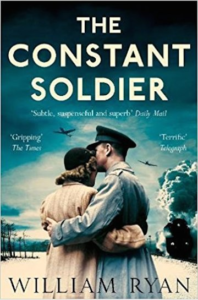
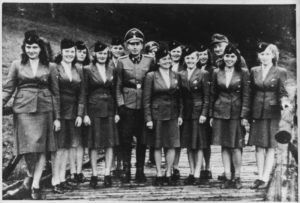
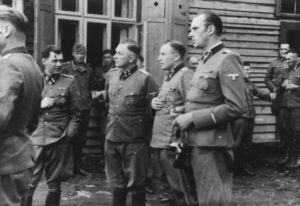
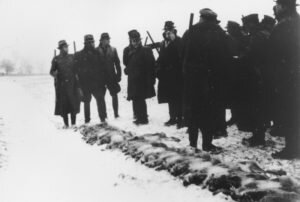
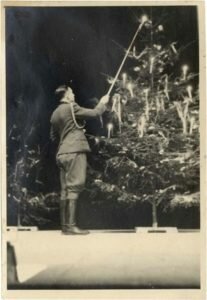
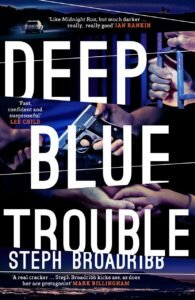
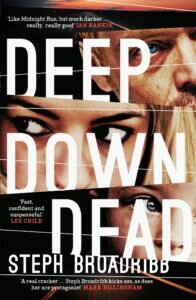
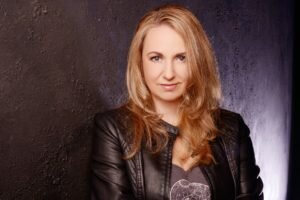
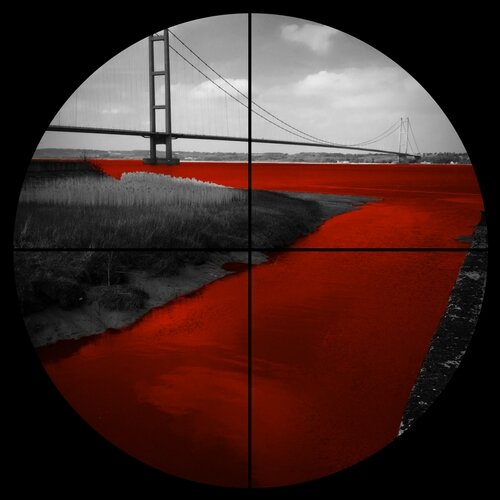
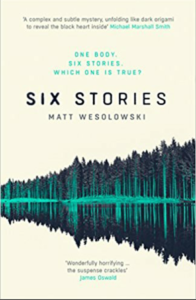
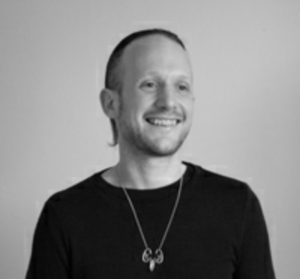
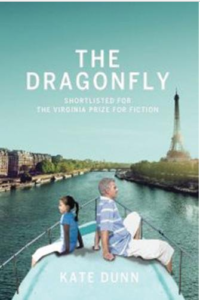
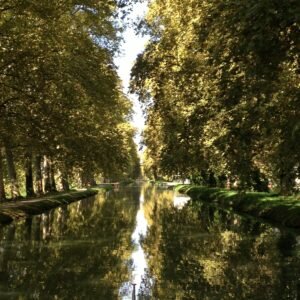

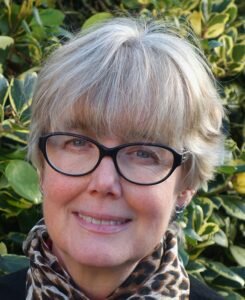
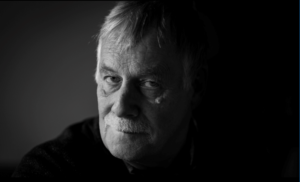
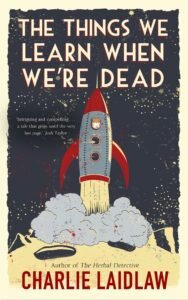
![received_10210373116342041[698]](/wp-content/uploads/2016/10/received_10210373116342041698-300x300.jpeg)
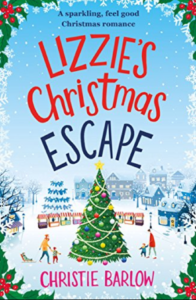
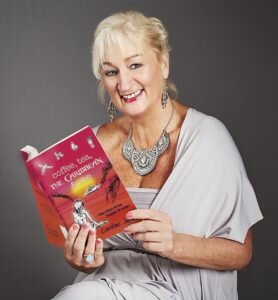
![9780957378209[221666]](/wp-content/uploads/2016/09/9780957378209221666-187x300.jpeg)
![9780957378292[221665]](/wp-content/uploads/2016/09/9780957378292221665-202x300.jpeg)
